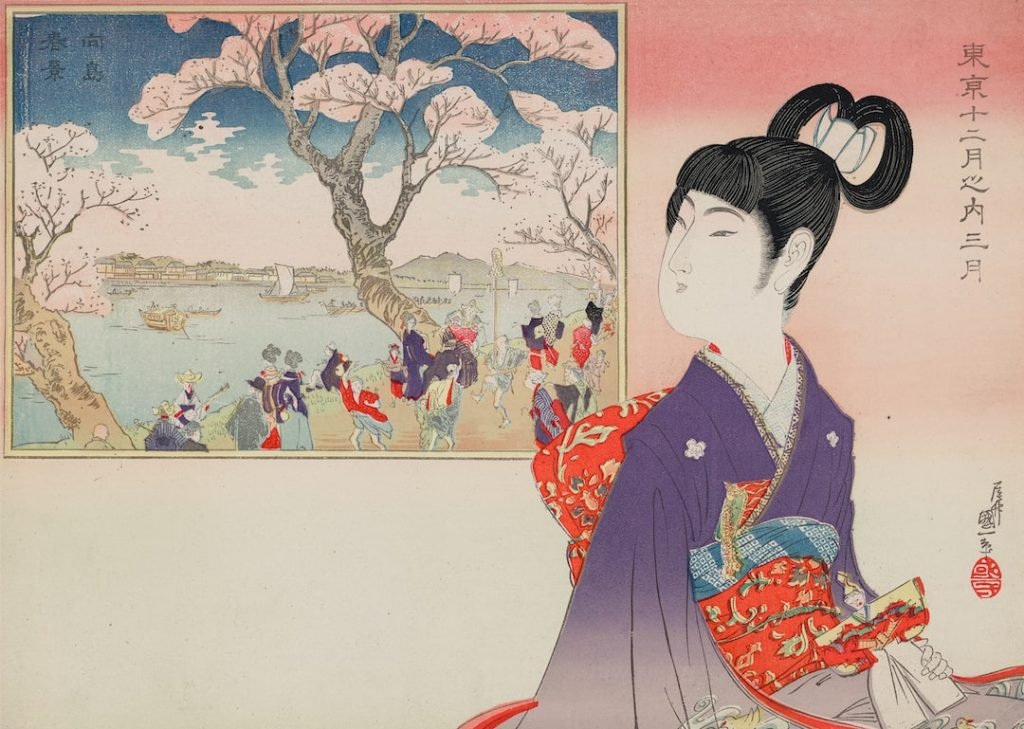

Learning Norwegian: Vocabulary for Traditional Festivals and Customs
Norway is a country with a rich cultural heritage and traditions that are deeply rooted in its history. Festivals and celebrations play a significant role in Norwegian culture, bringing people together to honor their customs and celebrate their shared identity. These festivals are not only a time for joy and merriment, but also an opportunity to pass down traditions from one generation to the next.
Table of Contents
ToggleVocabulary for Christmas Traditions in Norway
Christmas is one of the most important festivals in Norway, and it is celebrated with great enthusiasm and joy. Common Norwegian words and phrases associated with Christmas include “jul” (Christmas), “juletre” (Christmas tree), “julekake” (Christmas cake), and “julepynt” (Christmas decorations). Traditional Norwegian Christmas foods include “lutefisk” (dried fish), “pinnekjøtt” (salted and dried lamb ribs), and “riskrem” (rice pudding). Decorations such as “julestjerne” (Christmas star) and “julenisse” (Santa Claus) are also commonly seen during the festive season.
Vocabulary for Easter Traditions in Norway
Easter is another important festival in Norway, marking the arrival of spring and the resurrection of Jesus Christ. Common Norwegian words and phrases associated with Easter include “påske” (Easter), “påskeegg” (Easter egg), “påskehare” (Easter bunny), and “påskekylling” (Easter chick). Traditional Norwegian Easter foods include “påskebrød” (Easter bread), “påskelam” (Easter lamb), and “påskesnop” (Easter candy). Decorations such as “påskelilje” (Easter lily) and “påskepynt” (Easter decorations) are also commonly seen during this time.
Vocabulary for National Day Celebrations in Norway
Norway’s National Day, also known as Constitution Day, is celebrated on May 17th each year. It is a day to commemorate the signing of the Norwegian Constitution in 1814 and to celebrate Norwegian independence and national pride. Common Norwegian words and phrases associated with National Day include “nasjonaldag” (National Day), “flagg” (flag), “tog” (parade), and “bunad” (traditional Norwegian costume). Traditional Norwegian National Day foods include “pølse” (sausage), “is” (ice cream), and “kransekake” (almond ring cake). Decorations such as “blomsterkrans” (flower wreath) and “bunadsølv” (traditional silver jewelry) are also commonly seen during the celebrations.
Vocabulary for Midsummer Celebrations in Norway
Midsummer, or St. John’s Eve, is celebrated in Norway on June 23rd each year. It is a time to celebrate the arrival of summer and the longest day of the year. Common Norwegian words and phrases associated with Midsummer include “sankthans” (Midsummer), “bål” (bonfire), “blomsterkrans” (flower wreath), and “solsnu” (solstice). Traditional Norwegian Midsummer foods include “grillmat” (barbecue food), “jordbær” (strawberries), and “rømmegrøt” (sour cream porridge). Decorations such as “bjørkekvister” (birch branches) and “blomsterkranser” (flower wreaths) are also commonly seen during the celebrations.
Vocabulary for St. Lucia’s Day Celebrations in Norway

St. Lucia’s Day, or Luciadagen, is celebrated in Norway on December 13th each year. It is a festival of light and a time to honor St. Lucia, a Christian martyr who is associated with bringing light into the darkness. Common Norwegian words and phrases associated with St. Lucia’s Day include “Luciadagen” (St. Lucia’s Day), “lys” (candle), “luciatog” (St. Lucia procession), and “luciasang” (St. Lucia song). Traditional Norwegian St. Lucia’s Day foods include “lussekatter” (saffron buns) and “gløgg” (mulled wine). Decorations such as “stjernestake” (star candle holder) and “lysestaker” (candlesticks) are also commonly seen during the celebrations.
Vocabulary for Harvest Festivals in Norway
Harvest festivals are celebrated in Norway to give thanks for a successful harvest and to celebrate the abundance of nature. Common Norwegian words and phrases associated with Harvest festivals include “høstfest” (harvest festival), “takkefest” (thanksgiving feast), “høsttakkefest” (harvest thanksgiving festival), and “høstmat” (harvest food). Traditional Norwegian Harvest festival foods include “rakfisk” (fermented fish), “flatbrød” (crispbread), and “eplekake” (apple cake). Decorations such as “høstblomster” (autumn flowers) and “høstkranser” (harvest wreaths) are also commonly seen during the celebrations.
Norwegian Language Classes for Learning Festive Vocabulary
If you are interested in learning more about Norwegian festivals and customs, taking Norwegian language classes can be a great way to expand your vocabulary and deepen your understanding. There are many language classes and resources available for learning Norwegian, both online and in-person. These classes often include lessons on festive vocabulary, allowing you to learn words and phrases specific to each festival and celebration.
Benefits of taking language classes for understanding Norwegian festivals and customs include being able to communicate with locals during these celebrations, understanding the significance of different traditions, and immersing yourself in the culture. By learning the language, you can fully participate in the festivities and gain a deeper appreciation for Norwegian culture.
Norwegian Language Schools Specializing in Cultural Immersion
For those who are looking for a more immersive experience, there are Norwegian language schools that specialize in cultural immersion. These schools offer programs that not only teach the language, but also provide opportunities to experience Norwegian festivals and customs firsthand. By living and studying in Norway, you can fully immerse yourself in the culture and gain a deeper understanding of Norwegian traditions.
Benefits of cultural immersion for learning Norwegian and understanding Norwegian festivals and customs include being able to practice the language in real-life situations, building connections with locals, and experiencing the festivals and celebrations firsthand. By immersing yourself in the culture, you can develop a deeper appreciation for Norwegian traditions and customs.
Benefits of Learning Norwegian for Understanding Norwegian Festivals and Customs
Learning Norwegian is not only beneficial for understanding Norwegian festivals and customs, but also for building connections and relationships with Norwegians. By learning the language, you can communicate with locals during these celebrations, understand the significance of different traditions, and fully participate in the festivities. This can lead to a deeper appreciation for Norwegian culture and a stronger sense of belonging.
In addition, learning Norwegian opens up opportunities for travel, work, and further education in Norway. It allows you to explore Norway’s rich cultural heritage and traditions firsthand, and to connect with people on a deeper level. Whether you are interested in Norwegian festivals and customs for personal or professional reasons, learning the language is a valuable tool for understanding and engaging with Norwegian culture.
In conclusion, Norwegian festivals and customs are an important part of the country’s rich cultural heritage. By learning the language and immersing yourself in the culture, you can gain a deeper understanding of these traditions and fully participate in the festivities. Whether you choose to take language classes or enroll in a cultural immersion program, learning Norwegian is a valuable investment that will open up a world of opportunities and connections. So why not start learning Norwegian today and explore Norway’s vibrant festivals and customs?
If you’re interested in learning Norwegian vocabulary related to traditional festivals and customs, you might also find our article on “The Nature of Norwegian: Learning Words for Outdoor Adventures” helpful. This article explores vocabulary for outdoor activities and nature-related terms, which can be useful when discussing traditional festivals and customs that take place outdoors. Check it out here.
FAQs
What is the article about?
The article is about learning Norwegian vocabulary related to traditional festivals and customs.
What are some traditional festivals and customs in Norway?
Some traditional festivals and customs in Norway include Christmas, Easter, Midsummer, and National Day.
Why is it important to learn Norwegian vocabulary related to traditional festivals and customs?
Learning Norwegian vocabulary related to traditional festivals and customs can help individuals better understand and appreciate Norwegian culture and traditions.
What are some Norwegian words related to Christmas?
Some Norwegian words related to Christmas include jul (Christmas), juletre (Christmas tree), julekake (Christmas cake), and julegave (Christmas present).
What are some Norwegian words related to Easter?
Some Norwegian words related to Easter include påske (Easter), påskeegg (Easter egg), påskekylling (Easter chick), and påskelilje (Easter lily).
What are some Norwegian words related to Midsummer?
Some Norwegian words related to Midsummer include sankthans (Midsummer’s Eve), bål (bonfire), blomsterkrans (flower wreath), and grilling (barbecue).
What are some Norwegian words related to National Day?
Some Norwegian words related to National Day include nasjonaldag (National Day), flagg (flag), bunad (traditional costume), and is (ice cream).
If you want to learn Norwegian, you can register for classes here. We look forward to hearing from you and helping you become fluent in Norwegian.





